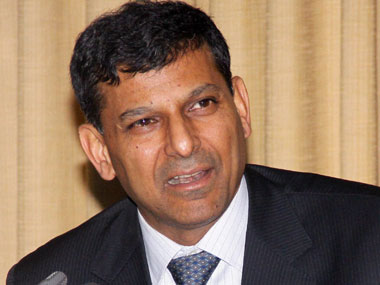Mumbai: Reserve Bank of India (RBI) governor, Raghuram Rajan, has often invited criticism in the past for his blunt comments on politically sensitive topics such as Prime Minister Narendra Modi's 'Make in India initiative' and the NDA government's rocket-speed implementation of financial inclusion programmes using state-run banks. This time, the former chief economist of International Monetary Fund (IMF) has raised another issue of critical importance in the Governor’s overview section of RBI’s 2014-15 annual report. The issue pertains to how public sector banks (PSBs) are forced to undertake government’s financial inclusion programmes, such as the Prime Minister’s Jan Dhan Yojana, without getting fully compensated for their losses.[caption id=“attachment_2408298” align=“alignleft” width=“380”]  RBI Governor Raghuram Rajan. PTI[/caption] “We should recognise that PSBs undertake public interest activities (like the roll out of accounts under the Pradhan Mantri Jan Dhan Yojana) that are not always fully compensated,” Rajan said. Surely, there are no two thoughts on the need for promoting financial inclusion in the country, where nearly half of the population is unbanked and, many of them, are highly dependent on private money lenders to fulfill their financial requirements. Opening a bank account is the first step to introduce someone to the world of formal finance. In that sense, Jan Dhan has done a commendable job. But, as Firstpost has highlighted earlier, the problem with Jan Dhan roll out was its rocket-speed implementation model. State-run banks were given unrealistic targets to be achieved in a painfully short span of time, putting pressure on branch level officers to resort to all sorts of tricks to get new account holders. In the process, substantial chunk of duplicate accounts were opened, where the same customer opened different accounts using different identity proof documents. Also, banks probably didn’t get enough time to reach the customer, who actually needed a bank account. Although, eventually these accounts will be linked to Aadhaar, the duplicate accounts will not vanish in a day or two. Banks will have to carry the cost burden on these accounts. Similarly, inoperative accounts too would add to their maintenance cost. Though the government initially promised to compensate PSBs, the promise has so far remained on the paper. This is where what Rajan said makes immense sense. “Government should endeavour to keep the competitive playing field level by fully compensating banks for activities it wants undertaken in the public interest,” Rajan said. The onus of carrying out (loss-making) financial inclusion activities has largely been the responsibility of state-run banks, while past evidence shows that private sector banks have largely stayed away from this segment, unless they are forced by regulation to lend to the poor and operate in the high-risk segments (such as the priority-sector lending obligation). This creates a lack of level-playing field for state-run banks. Clearly, that shouldn’t be the case. The government should ensure that the same rule is applicable to all. When government forces state-run banks to carry out financial sector activities, but refuses to fully compensate them, that creates distortions in their business. The Jan Dhan accounts have been opened at much higher cost than originally estimated. According to Indian Banks’ Association (IBA), the average cost for banks opening Jan Dhan accounts and maintaining them with benefits will be Rs 140 per account as against the earlier estimated Rs 80. Also, by refusing to compensate banks fully, the government is also contradicting its own stated objective of changing India’s state-run banks as profitable entities. The recently announced ‘Indradhanush’ package, which outlines a seven-pronged strategy to improve the performance of PSBs, stipulate performance efficiency targets to these lenders. In future, the state-run banks will be rated based on their performance. But, when the level-playing is absent, how can government expect sarkari banks to perform well competing with their private counterparts? The issue is not just about Jan Dhan like schemes but also about forced lending to certain specific segments such as agriculture, where banks are given annual targets. Remember this isn’t the first time Rajan has raised the issue of unfair treatment of state-run banks by the government. In September last year, Rajan had come down heavily on such practices. Implicitly referring to the Jan Dhan Yojana Rajan had said if the government gives a mandate to public sector banks to further its social sector agenda, the government itself should fund it to ensure financial viability for the entities. “You can’t give a mandate and not fund it,” Rajan said. “After all public sector banks also have private shareholdings and are not any longer an extension of the government. They should be seen as independent entities.” Rajan has a clear message to Modi and his Finance Minister, Arun Jaitley: Stop treating state-run banks as extended arms of the government but as independent institutions, which are answerable to shareholders. The government will do well by listening to Rajan’s advice.
When government forces state-run banks to carry out financial sector activities, but refuses to fully compensate them, that creates distortions in their business.
Advertisement
End of Article


)

)
)
)
)
)
)
)
)



